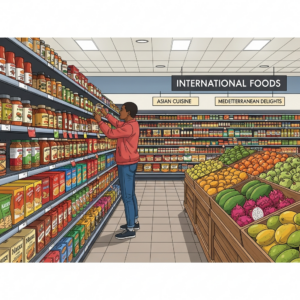The organic certification process is essential for food suppliers seeking to meet growing consumer demand for organic food. By ensuring compliance with rigorous standards, certification provides credibility, promotes sustainability, and fosters trust among customers. This guide explores the key stages of the certification process for suppliers.
Meeting the Initial Requirements
Suppliers must first understand and meet the basic eligibility criteria for organic certification. This includes adopting practices that comply with organic food standards, such as avoiding synthetic chemicals, using non-GMO seeds, and maintaining detailed records of all activities. These requirements form the foundation of the certification process, ensuring the integrity of organic products.
Submitting an Organic System Plan
The next step involves creating and submitting an Organic System Plan (OSP) to a certifying body. This comprehensive document outlines all aspects of production, handling, and storage, demonstrating how the supplier adheres to organic standards. The plan serves as a roadmap for compliance, covering areas such as soil management, pest control, and packaging methods.
Undergoing Inspection and Verification
Once the OSP is submitted, an on-site inspection is conducted to verify that the supplier’s practices align with organic certification requirements. Inspectors evaluate fields, facilities, and processes, checking for consistency with the submitted plan. Any discrepancies must be addressed before certification can be granted, ensuring transparency and accountability.
Receiving Certification and Maintaining Compliance
After successful inspection and approval, suppliers receive their organic certification, allowing them to label their products as certified organic food. To maintain certification, suppliers must undergo annual inspections and continue adhering to organic standards. Regular updates to the OSP and consistent record-keeping are crucial for staying compliant and building long-term trust with customers.
The organic certification process ensures that food suppliers meet high standards of quality and sustainability. By following these steps, suppliers can provide consumers with reliable organic food products, fostering confidence and supporting a healthier, more sustainable food system.
Learn More
How Organic Certification Standards Ensure Quality in the Supply Chain




